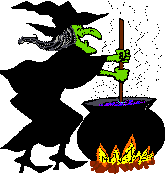|
|
Psychiatry is Junk science |
Psychologists seek credibility by deceptively fashioning themselves to appear to be another branch of medicine:
- "Psychologists in White Coats: The re-emergence of a medical image for psychological treatment, evident in two current activities, has constituted part of the efforts to repair psychology's image. First was the "scramble for protection under the powerful umbrella of medicine." psychology hoped that if it could associate itself with the strong and established profession of medicine, it could, by alliance or by default, gain the credibility it could not attain through research. This movement has been most evident in the re-acquisition of medical concepts and terminology and in the attempt to redefine physical illnesses in, emotional and psychological language. In contrast to its earlier anti-medical stance, in the late 1970s the Psychology industry began to remodel itself along the lines of traditional medicine. Problems became "psychopathology" or diseases (e.g. the "epidemic of depression"), difficulties became "disorders" or "syndromes," individuals again became "patients," assessments became "diagnoses" and outcomes were now "prognoses." A significant contribution to this movement was the official introduction in 1980 of the DSM-111, which the American Journal of Psychiatry described as having served to augment the "general trend toward the remedicalizations of the phenomena of psychiatry." In an editorial in the issue discussing the DSM-IV and psychotherapy, Chodoff concluded that "the other purposes [beyond diagnosis) the diagnostic manual serves [are] to provide labels for hospital, third party, and other records, and to supply data for research into the prevalence and outcome of psychiatric conditions no matter how they are treated." However, studies in the mid-1970s had shown the overall unreliability of these psychiatric labels, a conclusion that was supported by Chodoff when he noted that "treatment tends to give rise to a diagnosis." Thus, if the DSM is unreliable and diagnostically imprecise, it can only be concluded that the major effect of DSM-111 and its successors, the DSM IV and IVR, was its provision of billing codes and the consequent absorption of mental-health problems into the medical health care (and insurance) system. Not only did psychology adopt medical terminology, it also tried to co-opt medical patients and their business, with political statements such as "60% or more of the physician visits are made by patients who demonstrate an emotional, rather than an organic, etiology for their physical symptoms. But rather than share their turf, psychiatrists and psychologists began fighting for the same turf. Significant in this struggle is the current trend to approach psychological problems from a biological perspective, with regard to both diagnosis and treatment. For instance, neurobiological evidence and explanations are being sought for such problems as trauma and post-traumatic stress disorder." And pharmaceuticals are being tested and dispensed for the treatment not only of depressive symptoms, but also of attention deficit hyperactive disorder (e.g. Ritalin), impotence (e.g. Viagra) and alcoholism (e.g. Naltrexone). This shift towards a biological orientation has spurred licensed psychologists to lobby for the right to prescribe psychoactive drugs. ... And all of this is being carried out by a profession that historically fought psychiatry, hospitalization and the use of drugs, arguing that psychotherapy was "just as effective."" (Manufacturing Victims, Dr. Tana Dineen, 2001, p 256)
By Steve Rudd: Contact the author for comments, input or corrections.
Send us your story about your experience with modern Psychiatry

